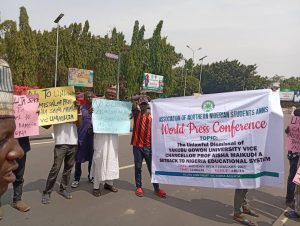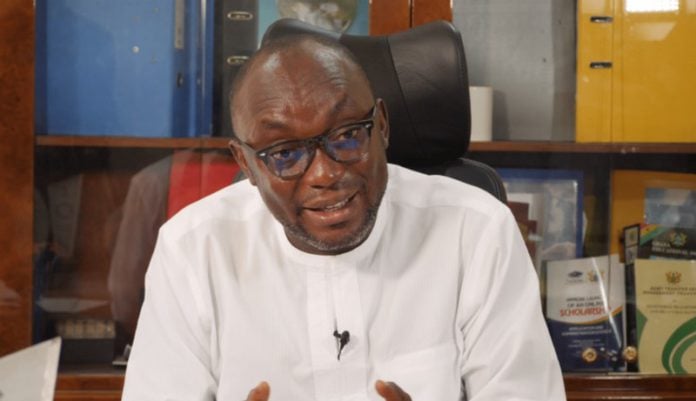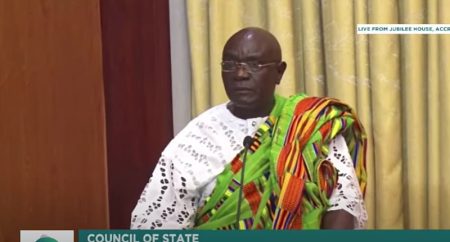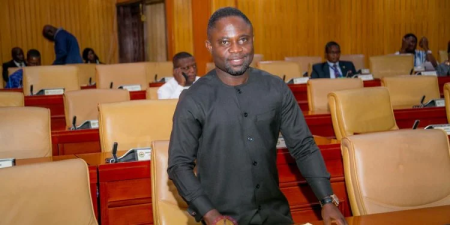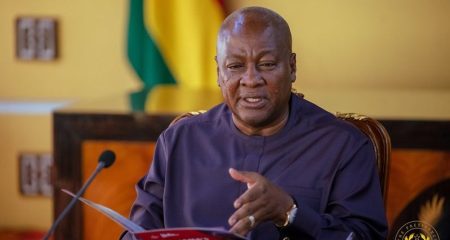The revocation of public sector appointments made by the previous New Patriotic Party (NPP) administration after the December 7, 2024 elections has ignited a heated debate, with accusations of political motivation and potential harm to national stability. Hon. Dr. Kingsley Agyemang, NPP MP for Abuakwa South Constituency, has emerged as a vocal critic of the decision, labeling it baseless and an attempt by the newly elected National Democratic Congress (NDC) government under President John Mahama to replace existing employees with party loyalists and family members. This directive, issued by Chief of Staff Julius Debrah on February 11, 2025, mandates the heads of all public institutions to rescind appointments made after the election date. Dr. Agyemang argues that such a sweeping action undermines the principle of fairness and equal opportunity for all Ghanaians, regardless of political affiliation.
Dr. Agyemang’s core argument centers on the idea that President Mahama, having been elected by the Ghanaian people, has a responsibility to serve all citizens, not just those aligned with his party. He contends that denying qualified individuals the opportunity to contribute to the public sector based solely on the timing of their appointment is unjust and counterproductive. Instead of a blanket revocation, Dr. Agyemang proposes a more nuanced approach. He suggests that if the government harbored concerns about the legitimacy or propriety of these appointments, a thorough audit should have been conducted to assess whether they adhered to established meritocratic principles. This would have allowed for a more targeted approach, addressing specific instances of potential irregularities while preserving the employment of those hired through legitimate processes.
The MP further cautions against the potential long-term consequences of this decision, warning that it could establish a dangerous precedent for future administrations. He envisions a scenario where each incoming government engages in a cycle of purging public sector employees appointed by their predecessors, creating instability and undermining the professionalism of the civil service. Such a practice, he argues, would erode public trust in government institutions and discourage qualified individuals from seeking public sector employment. This, in turn, could hinder the effective functioning of the government and the delivery of essential services to the citizenry.
Dr. Agyemang’s concerns extend beyond the immediate impact on the affected individuals. He highlights the potential for this decision to exacerbate Ghana’s unemployment rate, which he views as a threat to national security. By abruptly dismissing a significant number of public sector employees, the government risks creating a pool of disgruntled and unemployed individuals, potentially leading to social unrest and instability. He emphasizes that the economic hardship and lack of opportunity could fuel discontent and create a breeding ground for criminal activity, ultimately undermining national security.
The MP’s call for public condemnation of the government’s decision underscores his belief that this issue transcends partisan politics and affects all Ghanaians. He urges citizens to speak out against what he perceives as an injustice, emphasizing that the affected individuals are not exclusively NPP members. He reminds the public of President Mahama’s campaign promise of a “better Ghana for all” and questions whether this decision aligns with that vision. He frames the issue as a betrayal of the president’s commitment to inclusivity and equal opportunity, suggesting that these actions contradict the very principles upon which his campaign was built.
In a final appeal, Dr. Agyemang urges President Mahama and his administration to reconsider their decision, highlighting the potential negative consequences for both individual citizens and the nation as a whole. He reiterates his concerns about rising unemployment and the potential threat to national security, emphasizing the importance of creating a stable and inclusive environment for all Ghanaians. He calls for a more thoughtful and measured approach to addressing any concerns about the appointments, advocating for a process that respects the rights of individuals and upholds the principles of fairness and good governance. He believes that a dialogue and potential review would ultimately serve the best interests of Ghana and its people.




